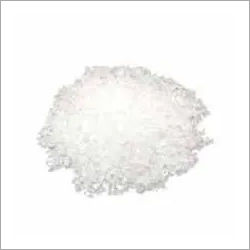
Benzoate Plasticizer
150 INR/Kilograms
Product Details:
- Storage Room Temperature
- Product Type Benzoate Plasticizer
- CAS No 27138-31-4
- Grade Technical Grade
- Shelf Life 12 Months
- Purity 99%
- Application Industrial
- Click to view more
X
Benzoate Plasticizer Price And Quantity
- 150 INR/Kilograms
- 25 Kilograms
Benzoate Plasticizer Product Specifications
- Benzoate Plasticizer
- Room Temperature
- 27138-31-4
- Technical Grade
- 99%
- 12 Months
- Industrial
Benzoate Plasticizer Trade Information
- 100 Kilograms Per Day
- 6 Days
Product Description
Benzoate plasticizers are a type of chemical additive used in the manufacturing of plastics, particularly polyvinyl chloride (PVC) and other polymer materials. These plasticizers are often derived from benzoic acid and are added to polymers to improve their flexibility, durability, and workability. They help make plastics more malleable and less brittle, which is important for various applications, including the production of vinyl flooring, cables, pipes, and flexible PVC products.
# Common benzoate plasticizers include:
1. Dibenzoate Plasticizers: These plasticizers are derived from dibenzoic acid. One example is diethylene glycol dibenzoate.
2. Diethylene Glycol Dibenzoate (DEGB): DEGB is a widely used benzoate plasticizer. It is known for its good plasticizing efficiency and low volatility, making it suitable for various PVC applications.
3. Dimethyl Benzoate: This is another benzoate compound that can act as a plasticizer for some polymers.
Benzoate plasticizers are favored for several reasons, including their low toxicity and ability to maintain good performance at both high and low temperatures. Unlike some other plasticizers, benzoate plasticizers are less likely to migrate out of the plastic material, which can be a concern in certain applications. Additionally, they tend to exhibit good resistance to UV (ultraviolet) radiation and weathering, which is important for outdoor applications.
# FAQ:
Q. What are benzoate plasticizers?
Ans: Benzoate plasticizers are chemical additives used in the production of plastics, especially polyvinyl chloride (PVC) and other polymers. They are added to improve the flexibility, workability, and durability of plastics.
Q. How do benzoate plasticizers work?
Ans: It work by reducing the intermolecular forces between polymer chains, making the plastic more flexible and less brittle. They enhance the material's ability to withstand deformation and maintain its mechanical properties.
Q. What are some common benzoate plasticizers?
Ans: Common benzoate plasticizers include diethylene glycol dibenzoate (DEGB), dibenzoate plasticizers, and dimethyl benzoate. DEGB is widely used due to its good plasticizing efficiency and low volatility.
Q. What are the advantages of using benzoate plasticizers?
Ans: Some advantages of benzoate plasticizers include low toxicity, good performance at a wide range of temperatures, resistance to UV radiation and weathering, and reduced migration from the plastic material.
Q. In what applications are benzoate plasticizers used?
Ans: Benzoate plasticizers are used in a variety of applications, including the production of PVC-based products such as vinyl flooring, cables, pipes, flexible PVC items, and other plastic materials.
Q. Are benzoate plasticizers safe for use in consumer products?
Ans: Benzoate plasticizers are generally considered safe for use in consumer products. They have low toxicity compared to some other plasticizers, making them suitable for applications where human exposure is a concern.
Q. Do benzoate plasticizers have any limitations or drawbacks?
Ans: While benzoate plasticizers have many advantages, they may not be ideal for all applications. Some limitations include their compatibility with certain polymer systems and their potential cost relative to other plasticizers.
Q. Are benzoate plasticizers environmentally friendly?
Ans: Benzoate plasticizers are considered to be more environmentally friendly than some other plasticizers due to their lower volatility and reduced migration. However, environmental considerations can vary depending on the specific plasticizer and its use.
Q. How do I choose the right benzoate plasticizer for my application?
Ans: The choice of a benzoate plasticizer depends on your specific application requirements, such as flexibility, heat resistance, and chemical compatibility. Consult with a materials expert or manufacturer for guidance on selecting the appropriate plasticizer for your needs.
Q. Are there any regulatory guidelines for the use of benzoate plasticizers?
Ans: Regulatory guidelines can vary by region and application. It's essential to stay informed about local and international regulations related to the use of plasticizers in your specific industry or application.
Tell us about your requirement

Price:
Quantity
Select Unit
- 50
- 100
- 200
- 250
- 500
- 1000+
Additional detail
Mobile number
Email






